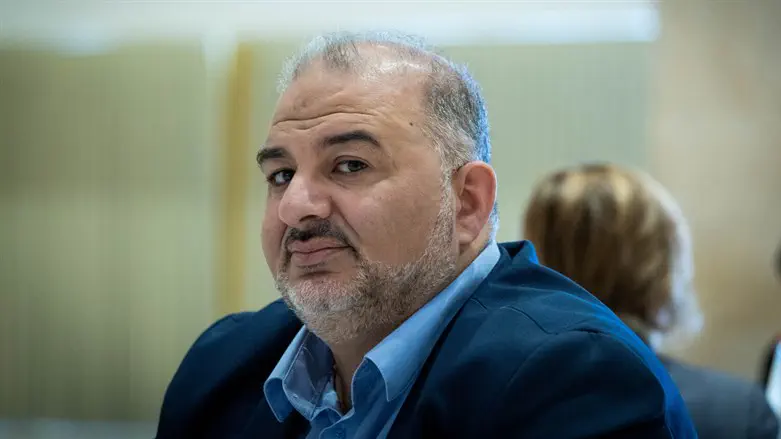
Amid the latest wave of terrorism in Israel, 68% of Israeli Arabs at least somewhat approve of the inclusion of the United Arab List political party in Israel’s current governing coalition, revealed a survey released at University of Haifa’s recent Conference on Politics and Arab Society.
According to the survey, 21% of Arab respondents are extremely supportive of the Arab party’s membership in the coalition, 23% are very supportive, 24% are somewhat supportive, and 32% are not supportive. Fifty-five percent feel that conditions for Israeli Arabs have improved during the past year (including 17% who agree, 14% who strongly agree, and 24% who somewhat agree), and 67% are optimistic about conditions improving in the future (including 20% who are optimistic, 16% who are highly optimistic, and 31% who are somewhat optimistic). Eighty-four percent agree that it is important to vote in the next Israeli election, with 58% strongly agreeing, 17% agreeing, and 9% somewhat agreeing.
The survey of 701 respondents from Israel’s largest Arab population centers was conducted by Dr. Doron Navot, a lecturer at University of Haifa’s School of Political Science, in the second half of February 2022.
“The Arab public is tired of sitting on the sidelines of politics, and wants to exert influence from within the coalition,” said University of Haifa faculty member Dr. Muhammad Khalaila. “However, there are still many within the Arab sector who do not think that the United Arab List has any significant achievements to its credit.”
In the realm of social issues, 88% of Israeli Arabs support equal rights for men and women (including 51% who are very supportive and 37% who are supportive), but 72% oppose granting rights to the LGBT community (with 9% somewhat supporting, 11% supporting, and 8% strongly supporting LGBT rights).
Member of Knesset (parliament, MK) Ahmad Tibi is the politician who most effectively promotes the interests of the Israeli Arab population, the survey found. Twenty-five percent of respondents chose Tibi and 21% chose MK Mansour Abbas, the current leader of the United Arab List party.
Abbas addressed the opening session of the March conference, which is a joint initiative of University of Haifa, the Israel Institute of Democracy, and the New Israel Fund. Commenting on the survey, he said the findings reflect the Arab public’s sentiment that right-wing politicians delegitimize the Arab party’s presence in the governing coalition. At the same time, Abbas said, “The mainstream Arab public understands that we can’t only talk to ourselves. We must also speak to others outside of our community.”
The Israeli Arab political leader was also optimistic on the Jewish public’s views surrounding the diversity of Israel’s current government.
“The very same Israeli public that did not agree to share a government with the United Arab List about a year ago is now our partner,” Abbas said. “Now, there is growing support among the Jewish population for Arab participation in government. Every day, I meet people who wear a kippah — traditional and ultra-Orthodox Jews, and some who identify as Likud voters — who understand and accept our involvement. I certainly don’t see anger about how we managed to apparently ‘overthrow’ a right-wing government and help form a more diverse one.”
Notably, Abbas’ comments were shared at a university whose student body is more than 32% Arab, far exceeding the Arab population share of Israel as a whole. University of Haifa also runs various initiatives that proactively foster coexistence — including the Jewish-Arab Community Leadership Program, which facilitates dialogue and multicultural social interaction between Jewish and Arab students through joint community projects, and the Haifa Innovation Labs, a start-up incubator whose programs focus on social innovation and impact entrepreneurship.
“Although the new survey findings indicate that the journey from Arab participation in the governing coalition to greater Jewish-Arab harmony in Israeli society is not complete, forums like University of Haifa’s Conference on Politics and Arab Society bring coexistence-related issues to the fore in an engaging, constructive format that makes crucial contributions to social progress and to peace,” said Lisa J. Silverman, CEO of American Society of the University of Haifa.
